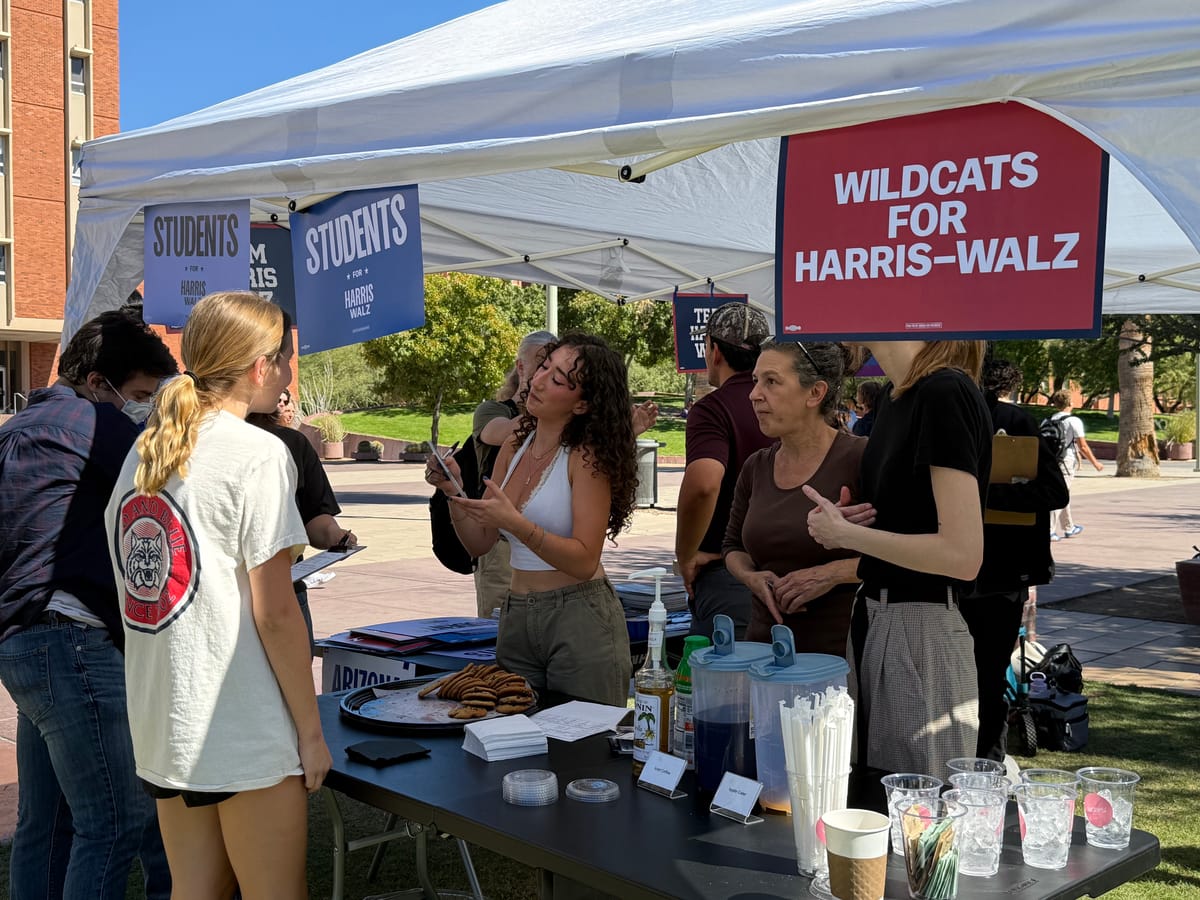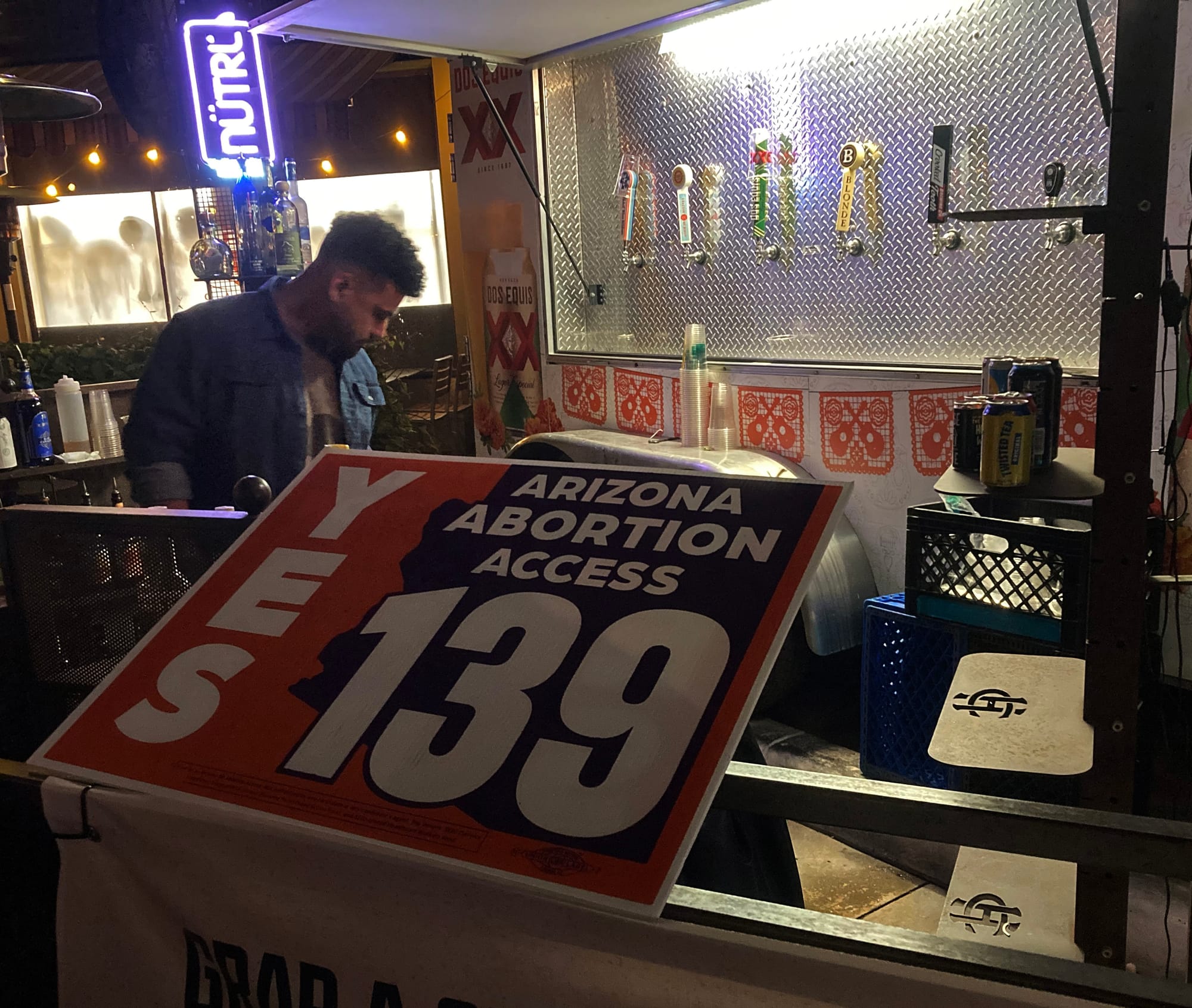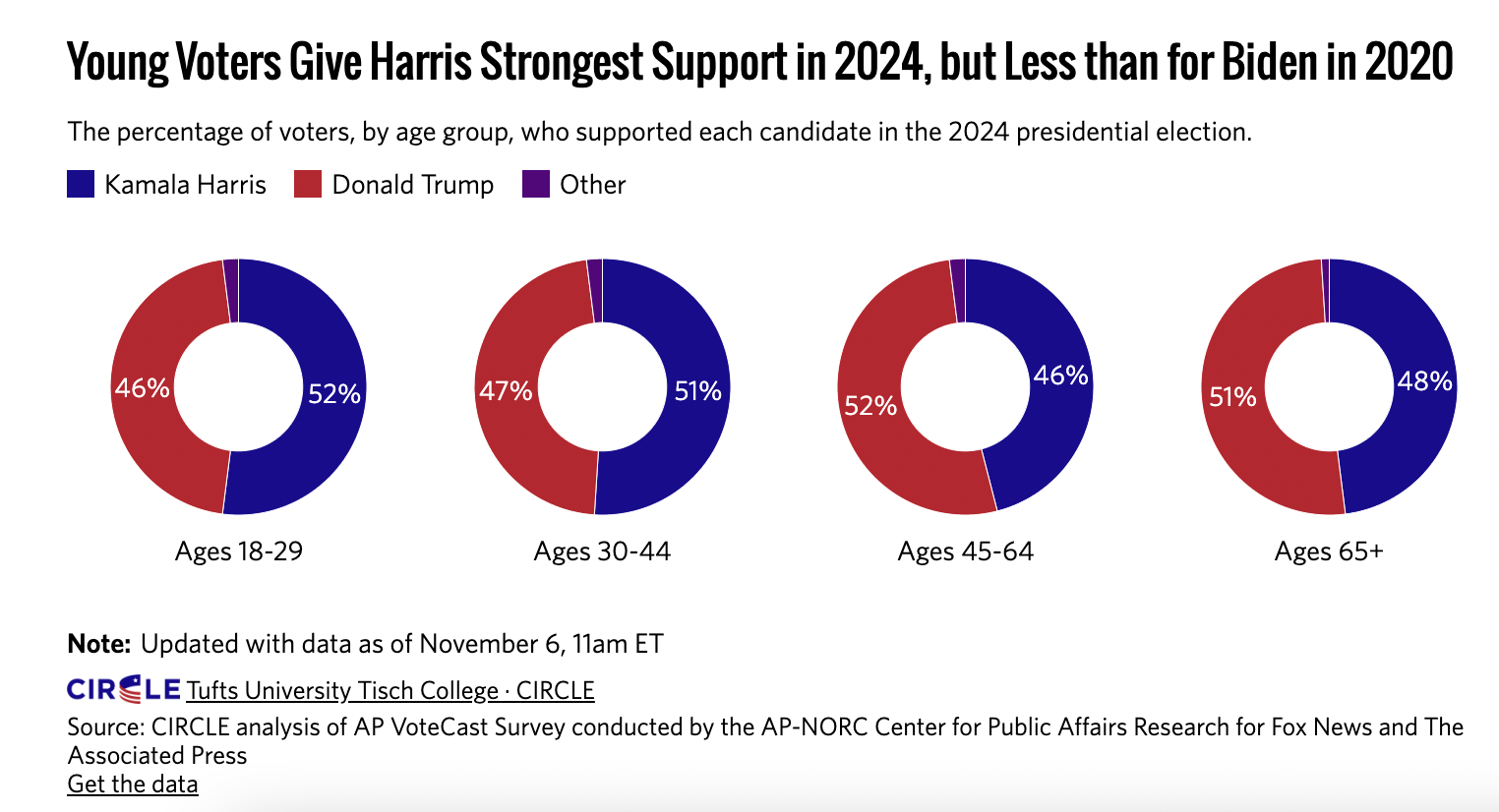Young voters react to presidential pick
Tucson Spotlight spent time on the UA campus Wednesday, talking to young voters about their post-election feelings and the implications for the future.

Young voters cast 14% of all ballots in the 2024 election, but researchers are still days or weeks from determining participation among voters ages 18-29.
But with long lines on the University of Arizona campus emergency voting site Monday and the nearby voting center yesterday, young people in Pima County were eager to get out and vote.
In the days and weeks leading up to election night, Tucson Spotlight spoke with dozens of young voters about their preferred candidates and the issues that drove them to the polls.
Support seemed evenly split between the presidential candidates, with students citing the economy and reproductive rights as their main concerns.
Nationally, the youth vote favored Kamala Harris by 6 points, but there were major differences by state and the overall trend appears to be increased youth support for Donald Trump this year compared to 2020, according to the Center for Information & Research on Civic Learning and Engagement at Tufts University.
In Arizona, youth voters also favored Harris by 6 points, but that’s a big shift from 2020, when President Joe Biden saw double-digit youth support that favored him by 22 points.
The race was contentious, with strong feelings on both sides of the ticket. And there’s always the risk that first-time voters who backed Harris might feel as if their vote didn’t count.
Spotlight spent time on the UA campus Wednesday, talking to young voters about their post-election feelings and the implications for the future.
“I am absolutely devastated by the outcome of our election. I have yet to understand what has happened in the last couple of hours fully,” said UA senior Katerina Guerrero. “I just keep thinking about all the people who will be affected by this election. I am worried for the people in my community, worried for women, mothers, daughters, and children.”
Guerrero went on to say that voters failed to protect the country’s future and took a step backwards.
“This was our chance to change history,” she said. “Though we are unsure of our future, we must come together to protect those we love and create a better future for our community,”

UA student Maria Del Carmen Montoya said that she felt as if many people’s votes weren’t taken into account.
“And many of the people's votes were very selfish, where they were just thinking about the economy with things that they don't actually really understand,” she said. “I feel like most of the voters were just trying to target underrepresented communities.”
Montoya said that she was shocked by how many Latinos voted for Trump, given the open hatred he displayed towards the community.
“I think that was probably the most disappointing thing that came out of this election,” she said.
Before the election, Millennials and Gen Zers were projected to make up nearly 44% of the electorate, sparking hope for significant youth voter impact.
But preliminary exit polls revealed that only about 1 in 6 voters were between the ages of 18 and 29.
For many Trump supporters on the UA campus, the election result was cause for celebration.
Arturo Whipple, a senior, said he felt inspired by Trump’s victory.
“I’m a MAGA boy,” he said. “I voted for Trump because he inspires confidence in me, and I want to buy a house when I graduate. I know the economy is about to get popping when Trump gets back in office.”
Logan Good, another Trump supporter, highlighted the economic benefits he expects to see under the new administration.
“Most of my family leans far right, and I pay my own bills and school expenses,” he said. “I just see there’s going to be lower gas prices, lower taxes — and that’s my draw. Under the last administration, I couldn’t find gas for less than $3.20 a gallon on a good day.”
Even Marisa Fidone, who once identified as liberal, said she was surprised by her reaction to Trump’s win.
“I was kind of relieved, to be honest,” she said.
But for many Harris supporters, the results feel disheartening.
Leah Steinberg said she had anticipated a Trump victory, but was still disappointed.
“This morning, as soon as I turned my phone on, I got the alert that Trump won,” she said. “I was disappointed, but not surprised… I had pretty little faith in the country.”

Emily Beck, a student journalist working with Arizona Public Media, said she found Trump’s victory disturbing.
“I was hoping for Kamala to win,” she said. “I think it’s super harmful for women’s rights and reproductive rights. It’s hurtful for me as a woman to see someone so hateful toward us back in office.”
Student Laura Sabagh expressed strong opposition to Trump’s social policies.
“He’s literally insane,” she said. “I focus more on domestic policy. I care about abortion, women’s rights, and unfortunately, foreign policy is probably gonna be exactly the same as the Democrats in terms of Palestine.”
But not every first-time voter had a strong preference
Independent Andrew Tang said he kept an open mind.
“I was up all night tracking it live… I was a little surprised that Trump won by that much, but I wasn’t too surprised he won,” he said.
Lauryn Jones, who described herself as feeling “unsure” about the outcome, said, “I felt it could have been a toss-up,” adding that she was just waiting for the results.
“My reaction wasn’t shock,” she said. “Even before the election, people had a lot of unsteady feelings, so if anything, I just hope for the best going forward.”
For some, the election was as much about character as it was about policy. Lucy, a political science major who did not want to give her last name, took issue with Trump’s personal conduct more than his policies.
“I was sad and kind of disheartened,” she said. “I was talking to my dad and said, ‘We voted for someone who said if she wasn’t my daughter, I’d do her.’ It just feels… wrong.”
Despite the results, students took notice of the shift in energy after Harris announced her run.
“People were hopeful this time,” said student Izaura Rodriguez. “But in the end, it was kind of disappointing.”
Angelina Maynes is a journalism major at the University of Arizona and reporter with Tucson Spotlight. Contact her at angelinamaynes@arizona.edu.
Isabela Gamez is a University of Arizona alum and Spotlight reporter. Contact her at gamezi@arizona.edu.
Tucson Spotlight is a community-based newsroom that provides paid opportunities for students and rising journalists in Southern Arizona. Please support our work with a paid subscription.



